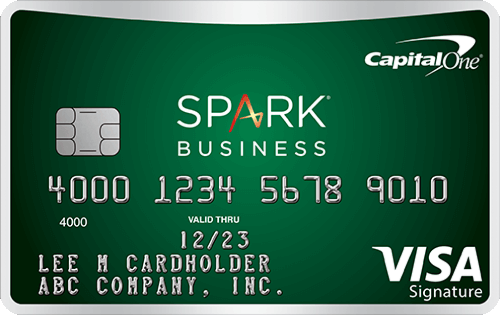
|
|
You might be using an unsupported or outdated browser. To get the best possible experience please use the latest version of Chrome, Firefox, Safari, or Microsoft Edge to view this website. |

After the horrific shooting at Marjory Stoneman Douglas High School in Parkland, Florida, wealth advisors across the country got an unprecedented number of calls.
Their clients were imploring them to figure out if they had inadvertently invested in weapons companies or were carrying gun suppliers in their portfolios, says Jon Hale, Morningstar’s director of sustainability research.
Events like these are spurring a growing number of investors to pause and think about where their dollars are going. As such, experts have seen a wave of interest in socially responsible investing.
In fact, assets under management in portfolios that use sustainable investing have grown to about $23 trillion globally, an increase of more than 600% over the past decade, according to Morningstar and Hale’s 2017 Sustainable Funds U.S. Landscape Report. In the U.S. alone, assets are at about $8 trillion.
So how can you make sure that your portfolio is aligned with your values? Start by figuring out what is most important to you.
What Is Socially Responsible Investing?
Socially responsible investing, or SRI, is an investment strategy where people choose to invest in companies that are environmentally and socially sound, or align with their core values.
Responsible investors typically use two strategies to do so, according to US SIF: The Forum for Sustainable and Responsible Investment. First, they consider a company’s environmental, social and governance standards, or ESG, when deciding whether to invest in it. Second, those with shares in publicly traded companies may file shareholder resolutions, or proposals, to influence the company’s behavior on issues of social or environmental concern. More than 200 institutional investors and money managers filed shareholder resolutions on ESG issues from 2016 through the first half of 2018, according to US SIF.
How Can SRI Work For You?
There are a number of ways you can get into SRI, but the best way to start is by researching and defining which causes matter to you. There are many exchange traded funds (ETFs), mutual funds and private investments that meet SRI criteria.
Jason Lacey, a financial planner at PJS Investment Management in Wisconsin, recommends focusing time, energy and investments on the 17 Sustainable Development Goals set by the United Nations. These include goals like affordable and clean energy, climate action and gender equality.
It’s best to focus on causes you are positive about, he says, but you can also opt to exclude companies involved in activities you feel strongly about, such as firearms, tobacco or coal.
Then, he suggests reviewing corporate governance and sustainability reports for the companies you are invested in. Ask yourself: Are they the best performers in their industry? Do they improve the conditions of the world?
Once you’ve made your list, you can either talk with a trusted financial advisor about it or seek out firms that specialize in SRI. For example, smaller, national firms like Natural Investments or Trillium Asset Management offer advising services catered toward sustainable and responsible investing. Larger online brokerages such as Charles Schwab and TD Ameritrade offer socially responsible portfolio options as well.
You can also opt to take a more do-it-yourself approach, either through these online brokerages or with a robo-advisor and other socially responsible investing apps (see more below).
Remember to look carefully at how the SRI investments you select fit within your overall portfolio allocation, cautions Megan Miller, a wealth manager at Harbor Financial Group in Colorado. Many SRI funds are primarily focused on larger U.S. companies, she says, which can leave you over allocated to domestic equities and under exposed to international, fixed income and smaller companies.
“People should be aware of performance history against the non-SRI investments,” Miller says. “Done carefully, you can replicate long term performance of a traditional portfolio, but you can find many SRI investments which do not hold up against their traditional peers.”
According to the Morningstar report, however, sustainable funds as a group performed better than the overall fund universe in 2018. The returns of more than half of the funds, or 63% (up from 54% in 2017), ranked in the top half of their respective Morningstar categories.
And according to a report by socially conscious investing app Swell, the MSCI KLD 400 index, a socially conscious investing index, has outperformed both the S&P 500 and the Russell 3000 on an actual and risk-adjusted basis for the past 25 years.
When you invest $100,000 in the S&P 500, more than one in 10 dollars goes toward fossil fuels, tobacco and firearms, a Swell spokesperson says.
Offering a contrarian viewpoint, New York-based fee-only advisor Gary Schatsky says he rarely hunts down socially conscious funds for his clients because the companies his clients have issues with rarely change their actions. For instance, if his clients pull out of investing in a cigarette company, it’s unlikely that the company would stop selling cigarettes, he says.
Instead, he encourages clients to give to charities or political committees that matter, or invest for profit in issues or companies they believe in.
“I would never tell myself or my clients to give up on the goal of doing right,” he says.
Socially Responsible Investing Apps
If you need help getting started with your sustainable investments, these apps offer a good introduction into SRI:
–Swell Investing: Owned by Pacific Life, Swell allows users to invest in a combination of any of its socially conscious portfolios in categories such as renewable energy, green tech and healthy living. You are also able to invest in Swell’s Impact 400 portfolio – its selection of the most impactful companies in all six of their thematic categories. The platform requires a $50 minimum investment with a comparatively hefty 0.75% annual fee.
CEO Dave Fanger says 80% of Swell’s 12,000 clients are part of Generation Y and Generation X. While Swell’s stock picks are already, presumably, socially responsible, it allows investors to exclude up to three individual stocks from their portfolios, though Swell says only 1% of customers opt to do so.
Motif: This online broker and portfolio manager requires a minimum investment of $1,000, but allows you to invest in Impact Portfolios for a 0.25% annual fee. Motif offers SRI portfolios in three categories: sustainable planet, fair labor and good corporate governance. Users are able to remove companies that don’t fit with their values. The platform also offers a trading account that allows you to build your own custom 30-stock portfolios, rate individual securities and participate in IPOs.
OpenInvest: For a $100 minimum investment, OpenInvest allows you to mix and match more than 10 themes to customize your portfolio based on your values. It also offers unique divesting options, such as the ability to divest from companies considered pro-Trump, or options to include companies doing the most to help refugees. The service charges a 0.5% of assets a year management fee, billed monthly.
Wealthsimple: Robo-advisor Wealthsimple builds users a personalized portfolio of low-fee ETFs that are weighted according to environmental and social impact, as well as for performance. These portfolios take issues into account including gender diversity, low carbon and social responsibility. Accounts with $1 to $100,000 come with fees of 0.5%, and those with over $100,000 have fees of 0.4%. (That’s on top of the expenses of the ETFs themselves.)
| Name of Credit Card | Sign-Up Bonus | Spending Requirement (for bonus miles/points) |
| AADvantage Aviator Red World Elite Mastercard | 50,000 miles, 1 Companion Certificate and | Make any purchase within 90 days |
| AAdvantage Executive World Elite MasterCard | 50,000 miles | $5,000 in 3 months |
| Avianca Vuela Visa | 40,000 miles and a 0% introductory APR for 12 months | Make any purchase within 90 days |
| Capital One Venture Rewards | 50,000 miles and a waived annual fee the first year | $3,000 in 3 months |
| Chase Freedom Unlimited | 3% cashback in the first year and 0% APR in the first 15 months | For every dollar charged to the card, you will get 3% back |
| HSBC Gold Mastercard | 0% APR on purchases and balance transfers for 18 months | None |
| SunTrust Prime Rewards Credit Card | $100 statement credit and also get 5.50% APR on balance transfers for 3 years | $500 in 3 months |
| Wells Fargo Cash Wise Visa | $150 cashback and 0% APR during the first 12 months |
$500 in 3 months |
- Earn 60,000 Membership Rewards® points after you use your new Card to make $5,000 in purchases in your first 3 months.
- Enjoy VIP status and up to $200 in Uber savings on rides or eats orders in the US annually. Uber Cash and Uber VIP status available to Basic Card Member only.
- 5X Membership Rewards® points on flights booked directly with airlines or with American Express Travel.
- 5X Membership Rewards points on prepaid hotels booked on amextravel.com.
- Enjoy access to the Global Lounge Collection, the only credit card airport lounge access program that includes proprietary lounge locations around the world.
- Receive complimentary benefits with an average total value of $550 with Fine Hotels & Resorts® program at over 1,000 properties. Learn More.
- $200 Airline Fee Credit, up to $200 in statement credits per calendar year in baggage fees and more at one qualifying airline.
- Get up to $100 in statement credits annually for purchases at Saks Fifth Avenue on your Platinum Card®. That’s up to $50 in statement credits semi-annually. Enrollment required.
- $550 annual fee.
- Terms Apply.
- See Rates & Fees
- Earn up to $300 back to boost your business. You can earn up to $100 in the form of statement credits at each of the following merchants: Dell Technologies, DocuSign or FedEx after you make an eligible purchase on your new Card within the first 3 months of Card Membership.
- Earn 2X Membership Rewards® points on everyday business purchases such as office supplies or client dinners. 2X applies to the first $50,000 in purchases per year, 1 point per dollar thereafter.
- Enjoy the flexibility to put more purchases on the Card and earn rewards when you buy above your credit limit*.
- You’ve got the power to use your Card beyond its credit limit* with Expanded Buying Power.
- More buying power for your business means more opportunities to earn points. That’s everyday business with the Blue Business Plus Card.
- *The amount you can spend above your credit limit is not unlimited. It adjusts with your use of the Card, your payment history, credit record, financial resources known to us, and other factors.
- 0.0% intro APR on purchases for 12 months from the date of account opening, then a variable rate, 13.24% – 19.24%, based on your creditworthiness and other factors at account opening.
- No Annual Fee
- Terms Apply
- See Rates & Fees
- Limited Time Offer: Earn up to $2,000 in cash bonuses
- Earn a $500 cash bonus when you spend $5,000 in the first 3 months and earn $1,500 when you spend $50,000 in the first 6 months of your account opening
- Earn unlimited 2% cash back for your business on every purchase, everywhere, no limits or category restrictions
- $0 annual fee for the first year; $95 after that
- Free employee cards, which also earn unlimited 2% cash back on all purchases
- $0 Fraud Liability if your card is lost or stolen
- Rewards won’t expire for the life of the account, and you can redeem your cash back for any amount
- No foreign transaction fees













